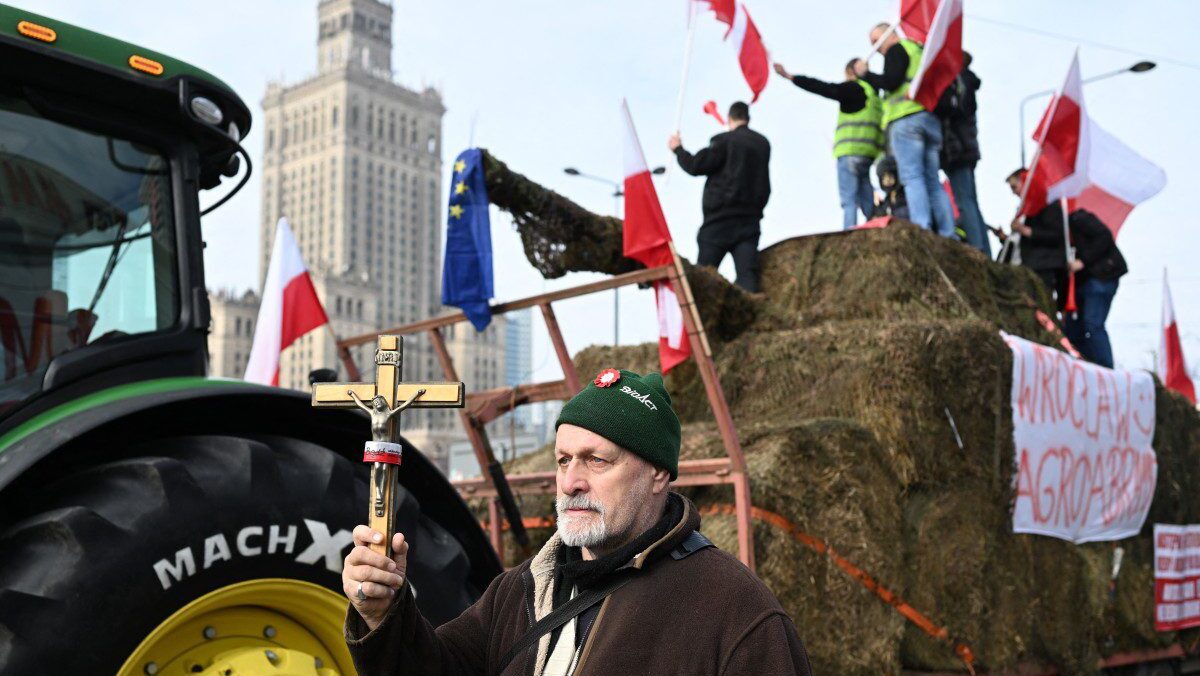
Photo: SERGEI GAPON / AFP
Is Warsaw quietly negotiating with European Commission President Ursula von der Leyen on granting Polish farmers possible exemptions to the EU’s onerous agricultural regulations? This rumor was confirmed true last Sunday, in a statement from Poland’s Deputy Foreign Minister Andrzej Szejna (S&D).
In February, Polish farmers launched a fresh wave of protests against cheap Ukrainian agricultural imports and environmental reforms as outlined in the EU’s controversial Green Deal. (Poland had already instituted a ban on several Ukrainian products, including grain.)
As part of their protest, farmers have since blocked all six Ukrainian-Polish border crossings, preventing an estimated 2,400 trucks from moving, with the sole exception being vehicles carrying humanitarian or essential cargo to war-torn Ukraine. To date, there is no immediate solution for breaking the gridlock.
To that end, informal talks with the EU are in process. Szejna told Radio ZET that to assuage farmers’ anger and desperation, Poland is looking for exemptions to EU regulations on “everything that is possible, both from the Green Deal and the influx of products [from Ukraine] that would cause a permanent disruption to the market of one or most countries.”
“If we succeed in negotiating Poland’s demands … it will be the common position of the EU,” Szejna said, warning that if it takes too long for the EU to accede to his country’s demands, disruptions at the border will continue—this time initiated by the state, and not the farmers.
“We will introduce changes, we will introduce border blockades, barriers, and customs duties unilaterally,” he threatened.
Poland and Ukraine are set to hold official talks in Warsaw on March 28th. Confident that the matter will have been resolved by then, Szejna said that by the time of the meeting, “the issue of the problem at the border will no longer exist.”
The talks are ongoing at an agricultural summit, which took place last Thursday. It was called by newly elected PM Donald Tusk, as his first set of talks with the representatives of Polish agriculture. Most of those farmers present left unconvinced.
Rural Solidarity (NSZZ RI “Solidarność”)—one of the main organizations behind the protests—decided to leave the meeting after a few minutes, protesting the fact that parts of the movement, including the farmers protesting at the border, were not even granted a seat at the table.
The EU-philic PM then gave assurances that he would convince Brussels to loosen demands made on Poland for meeting Green Deal-related requirements. However, farmers, perhaps rightly so, remain skeptical about whether their government is truly on their side, and will not eventually sell them out to Brussels.
Speaking to Euractiv Poland, Andrzej Danielak of the Polish Union of Poultry Breeders and Producers accused his country’s politicians of being “too slow and too diplomatic in expressing their assessments of the situation.” They “probably do not feel the pain experienced by farmers who produce at low prices and simultaneously have to repay their loans,” he concluded.
